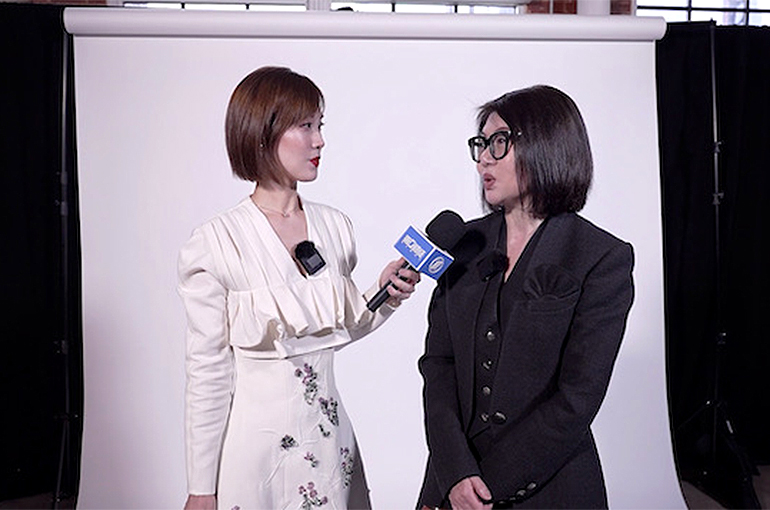
(Yicai) Feb. 21 -- Chinese brands going abroad has become an inevitable trend as the country's economy is becoming increasingly strong, according to the chief creative director of women's wear brand Juzui which staged a runway show during the latest New York Fashion Week.
Overseas audiences can learn from the show that brand awareness among Chinese consumers and companies is rising, Taoray Wang told Yicai during the biannual fashion week where Maye Musk, the mother of Elon Musk, closed Juzui's show, wearing a dress inspired by a blossoming peony.
"When I’ve modeled for Chinese designers, it’s always been very stylish, very creative, and different," Musk said to Yicai at the backstage. She said that Chinese and American people could visit each other more to learn more about each other and become friends.
"China not only has outstanding factories and supply chains but also is willing to share its characteristics and creative ideas with the rest of the world," said Wang who has been showcasing her designs at 14 New York Fashion Weeks before this.
Being able to appear on the international stage means Chinese companies are no longer just focusing on production, Lao Guoling, researcher at the Shanghai University of Finance and Economics, said to Yicai.
Instead, Chinese firms are more concerned about both ends of the "smile curve" to improve their capabilities of research and development as well as marketing to help brands go international, Lao added, referring to a concept of a high concentration of added value in upstream and downstream activities but low added value in the production phase. The smile curve also explains why global supply chains tend to direct manufacturing work to developing nations and R&D and marketing to developed economies.
Cultural elements are necessary for Chinese brands to go global, Lao said. By integrating Chinese and Western cultures, products can break down boundaries of different regions and cultures to reach more people and create new growth points for Chinese companies and the local economy, she added.
Editors: Dou Shicong, Emmi Laine